Elevating Corporate Sustainability
This is my keynote address given at the Institute of Internal Auditors Ghana 2022 Board/CEO/CAE Governance Workshop on Monday, 23rd November 2022 at Movenpick Ambassador Hotel, Accra, Ghana
I am truly honoured to address this distinguished gathering today. And I would like to thank my Institute, the Institute of Internal Auditors Ghana for the invitation extended to me. I am grateful to the Institute for putting this programme together and offering us an opportunity to cross-pollinate ideas and deal with an issue that confronts all leaders today, Corporate Sustainability, and for that matter elevating it.
What would be your definition of corporate sustainability, definitely for us as Internal Audit Executives it has to be strategic, focusing and prioritizing long-term growth through sustainable methods that deliver goods and services in a manner that is both environmentally sustainable and supports the economic growth of not only the business but for other stakeholders.
By elevating our corporate sustainability our organizations should be committing to using natural resources responsibly, investing in the long-term well-being of the planet and ensuring that all people involved in our business process are treated fairly.
Considering the number of participants here, I am convinced that many of us are committed to making our country work, alleviating the suffering of the masses and building Ghana up into a citadel of resilience within the sub-region, if not globally.
I, therefore, do not take this opportunity lightly. I deem it a rare privilege to engage with my fellow CEOs, board members, senior management executives, and others who bear the responsibility of taking the tough decisions required to make Ghana a success story.
At the expense of pre-empting anything from our speakers today, I wish to run through a few issues that I consider critical for the consideration of the board as well as senior management
The reality of a struggling economy: Given the times we find ourselves in, there is a need for organizations, companies, big and small, including government, and parastatals to contain operational costs to overcome the current economic difficulties.
Despite being spoken of, time without number, by economists, business leaders and even our favourites, the politicians, one cannot be faulted for pointing out that current economic conditions present multi-pronged challenges to most if not all senior managers or board members within this country. That notwithstanding we cannot escape blame if we fail to take the right decisions to put this country on a path to sustainable long-term growth. We need to face up to the fact that we are in a crisis that has long been coming and all of us gathered here would either be part of the solution or part of the problem. We cannot sit on the fence. But by agreeing to be part of this event, I believe that we are committing to elevate first the corporate sustainability of our country Ghana, and then our organizations. We need to take advantage of this crisis to structurally transform our country into a sustainable one.
I suppose that many of us are abreast with our journey to the present state of the country. Nonetheless, it would not hurt for me to attempt a recall.
We had challenges preceding 2017 which saw us turning to the IMF for support. The IMF in a press release on the 3rd of April 2015 announced that it had approved a US$918 Million Extended Credit Facility Arrangement to Help Ghana Boost Growth, Jobs and Stability. Its Executive Board approved a three-year arrangement under the ECF for Ghana in support of our authorities’ medium-term economic reform program. The program aimed to restore debt sustainability and macroeconomic stability to foster a return to high growth and job creation, while protecting social spending. The Executive Board’s decision enabled an immediate disbursement of about US$114.8 million.
After the Executive Board’s discussion, Mr Min Zhu, Deputy Managing Director and Acting Chair stated: “After two decades of strong and broadly inclusive growth, large fiscal and external imbalances in recent years have led to a growth slowdown and are putting Ghana’s medium-term prospects at risk. Public debt has risen at an unsustainable pace and the external position has weakened considerably. The government has embarked on a fiscal consolidation path since 2013, but policy slippages, exogenous shocks, and rising interest costs have undermined these efforts. Acute electricity shortages are also constraining economic activity.
This was the 16th time that we had gone to the IMF since independence. Something is not sustainable with the way we have managed our economy and I dare say with the IMF solution we have procured throughout our lives as an independent state and we need to elevate corporate sustainability. Is it surprising that we are back to the IMF again after 3 years?
Then we also had to another crisis to endure as a result of the financial sector clean-up, what caused the need for the financial clean-up and what has been the cost to us as a people? A lot of experts reported that there was a looming banking crisis in Ghana, unless the government and central bank took the right steps and decisions, following the economic decline by the end of 2016. The rating agency, Moody’s issued a report in February 2017, indicating that Ghana banks in addition to the problems of non-performing loans, were facing high asset risks. Moody’s pointed out that the banks were facing these risks, despite solid capital buffers, stable funding and an economic recovery expected in the country. According to the report, the increase in problem loan levels was driven by large exposures to energy companies, for which unpaid government subsidies prevented scheduled bank loan repayments.
The courts are also replete with some of the reasons for the crisis that cost the country about GHS21 Billions and are still sighted for some of the problems that still confront us. Have we been able to deal with it sustainably and have we learnt any critical lessons from it? What resilience have we built into our banking and financial sector?
Right on the back of that, we encountered COVID-19 and its repercussions. Even before we could exit or adjust to the throes of the pandemic, we now have the Russian-Ukraine war on our hands. Because of the cumulative effects of these or some other self-inflicted causes, our country’s credit rating plummeted and one of our major streams of financing and foreign exchange, the Eurobond market became inaccessible.
So much has happened ever since and our economy is experiencing difficulties of monumental proportions that call for all hands on deck to resolve it. Some businesses are going to rise out of these crises and there are some giants that are going to go into oblivion following these challenges. What side would we be and what difference would we be making as leaders?
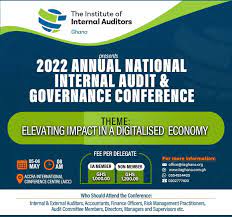 Given the global economic crisis that other countries are facing, developed countries, especially the US have hiked up their central bank rates making their markets more attractive than ours. Therefore, in response as rational investors, the more developed economies or financial systems became more attractive to investors that would otherwise have lent us money and as a result, we were left without takers of our bonds.
Given the global economic crisis that other countries are facing, developed countries, especially the US have hiked up their central bank rates making their markets more attractive than ours. Therefore, in response as rational investors, the more developed economies or financial systems became more attractive to investors that would otherwise have lent us money and as a result, we were left without takers of our bonds.
There are divergent views on what we could or could not have done differently. In Ghana, we have surrendered the space to the partisan class. Forgetting that this crisis would impact all of us and might make irreparable damage and there is a need for us to close ranks to find solutions to the challenge confronting us. Irrespective of the verdict, we, as board members or other forms of senior-level management, have a duty to show leadership. What is your contribution to getting us out of the crisis? What is the role of bodies such as IIA? A gathering like this should look at our issues dispassionately and analyse them and proffer solutions. We need to push the political class to listen to the professional and academic segments of society and elevate corporate sustainability strategies for our country, our businesses and our members. We cannot always be using less than 25% of the resources available to us to solve our national problems.
The challenging economic conditions shall require tougher decisions and greater empathy. Could the economic conditions become a rationalisation for unethical conduct by employees and other corporate actors? The right tone has to be set at the very top and we have to look at long-term solutions rather than short-term fixes that would take us back to the 18th IMF even before the ink dries on the 17th escapade. We need to dig deep into our internal resources and find our solutions to our crisis. It would call for great sacrifices and we as leaders would have to model the change we need. Can we look our employees in the face and declare them redundant if the IMF for instance requests such a course of action as a conditionality? Now more than ever, emotional intelligence is a must-have for all leaders.
For the SOE where would such redundancies come from, would it be from the top or we would sacrifice those at the bottom? Would labour be prepared to sacrifice tomorrow’s comfort to get us out of this challenge? That would also require the government to demonstrate leadership in the burden sharing and demonstrate the sacrifices that we are prescribing. This is not the time for doing the normal. It calls for a lot of innovative ideas and the right signalling. The right tone would have to be set at the top.
Technological advancement: Another inescapable focal area is technological advancement decisions that you need to make more frequently now than before. This is the time to deploy digital transformative tools to transform our economies, introducing effectiveness and efficiencies in our economies. We would have to transform our agribusiness using technology. AgricTech, Edutech, Fintech, and HealthTech are all opportunities that should capture our attention. We cannot leave technology for our IT leads. Technology would have to be mainstreamed into our boardrooms.
Prominent among the areas requiring attention at the higher echelons of the organisational hierarchy is the issue of cyber security and the requirement for effective cyber governance. Check Point, a cyber security service provider, reports that there has been a 28% increase in global cyber-attacks in the third quarter of 2022 when compared to the same period in 2021. The times when the millennium bug meant nothing for us in Ghana are a thing of the past. Now we are a very connected world and cyber security and cyber awareness it very critical. It is in times of crisis that cybercriminals are also on the prowl and it is important that if we would elevate our corporate sustainability, we take cybersecurity very seriously.
Many organisations here might have adopted some form or forms of Enterprise Resource Planning packages to make their operations efficient. About these ERPs will be some forms of threats and vulnerabilities. As boards and senior-level management members, we should deliberate more on these threats and take resolute actions accordingly. Whether your ERP is cloud-based or not, there are risk concerns that you should keep an eye on. No wonder the most recent edition of the IIA’s Tone at the Top focuses on mitigating cyber threats.
For us Internal audit executives we could be a powerful resource for boards in addressing cyber risks. That is if you as a member of IIA are future-proof and you take the institute’s resources seriously. As IIA says Cybersecurity has become a permanent fixture in the modern risk landscape, and boards face increasing pressure to provide proper oversight of a threat that is multifaceted and constantly evolving. What’s more, organizations are also facing new regulations that call for them to report breaches they have experienced. If your organization has been designated a Critical Information Infrastructure, then the Cyber Security Authority would have some requirements for you. We as internal auditors should provide organizations with independent, objective assurance and advice. We have the potential to be a powerful resource for boards in addressing cyber risks. According to a PwC report, “many companies leverage internal audit to review cyber processes and controls, including resilience and response.” Are you providing such opportunities to your organizations?
These are the questions IIA in their Tone At the Top Article of October 2022 wants us all to answer
Are we making the best use of internal audit insight and advice in our strategic planning related to cybersecurity?
Have we adequately staffed and funded cybersecurity efforts?
Has the organization defined its risk tolerance when it comes to cybersecurity in financial terms?
Is a specific committee assigned oversight of cybersecurity?
Do directors understand the company’s procedures in case of a cyber breach and know their role if it happens?
Changing Skillset Requirements: Emerging challenges and the urgency for the adoption of new ways of working, require that we learn to adapt, and support our teams acquire new skills to enable them to manage and operate effectively. This means that we also need to learn new skills and unlearn some old ones. Work has changed—and so must leaders. For the crisis that confronts us as a nation, a hybrid work environment has become critical. In Ghana, one of how you can lessen the impact of the crisis of high fuel and transport costs as well as the price of food for your staff is to permit them to work from home. But that should not sacrifice productivity and delivering results.
There are 4 management shifts that you require to guarantee success if you would adopt a hybrid work environment
Managing performance through outcomes, impact, and ownership. For you to be successful in a hybrid environment, you have to move to a stronger outcome and impact orientation, while empowering employees to determine how they get to and take full ownership of outcomes. Prerequisites include setting clear roles and tangible goals and milestones, then checking in weekly or even daily to hear about roadblocks, offering support to clear them and ensuring that workloads are manageable. Also, you need to hold your teams accountable to achieve outcomes.
Doing more to build trust and togetherness. Trust and togetherness are imperative to support employee innovation and creativity. However, traditional methods like walking the company floor, physical meetings, staff durbars and get-togethers would be less readily available. Moreover, insecurity can lead some to micromanage and exhibit controlling behaviours. As leaders we should proactively establish trust by role modelling and encouraging the following characteristics:
Reliability: “You can count on me to meet my commitments.”
E.g., sticking to regular check-ins, removing roadblocks, ending virtual meetings five minutes before the next one to ensure punctuality throughout the day
Acceptance: “I accept who you are and respect your perspective.” E.g., deliberately inviting all meeting participants to speak up, even those with divergent opinions; establishing rules for participative decision-making; having familiarity with and recognizing the traditions and habits of a diverse set of employees. This is especially so in virtual meetings
Openness: “I share what I think, do, and feel, and I am open to feedback.”
E.g., starting every morning with a team check-in,
Authenticity: “I walk my talk.” Don’t be afraid to show venerability, you are no superman
E.g., sharing professional backgrounds, and creating team rituals that encourage personal expression (https://www.mckinsey.com/capabilities/people-and-organizational-performance/our-insights/the-organization-blog/how-to-lead-in-a-hybrid-environment).
This means that amid squeezed budgets, we cannot fail to equip our employees with new skill sets to make our organisations competitive. You need to deliberate about what skill set you need to win. It is not about just overseas travel for courses. There are great courses you can take virtually and you need to model that. These opportunities should not just be based on seniority but on who can make the most impact.
Furthermore, senior management and board members need to take interest in the discussions relating to the development of the nation’s human resources. We must find a way to influence what sought of education Ghana offers to its youth and future leaders. After all, that is the source of our competitive advantage.
An Environmental, Social and Governance (ESG) focus: Irrespective of what areas our organisations are engaged in, the framework of Environmental, Social and Governance (ESG) investing is one key topic that must feature on our agendas. Bloomberg estimates that ESG investment assets value may exceed $50 trillion by 2025. What is it for our country and what would that mean for our AfCFTA
Under our current economic conditions should organisations not be positioning themselves to tap into some of these funds, by taking some ESG-focused business decisions? No longer are discussions limited to the bottom line. Reference is now mostly made to a triple bottom line of People (purpose) Planet (environmental) and Profit (financial)
For my part, you would all by now have known that I have been at the forefront of the fight against the eerily sickening and wantonly destructive venture of illegal mining in Ghana. That fight is a fight for the soul of mother Ghana and I urge you all to lend it your fullest support. We owe it a duty to leave Ghana worthy of serving the needs of generations yet unborn. It is important to note that Ghana is a water-distressed country we are currently in water stress conditions but fast deteriorating into water scarcity.
Corporate Ghana has not shown enough interest in the fight against Galamsey. It is about the sustainability of your business, your customers and your staff are at risk, your environment is in danger and your profits would be impacted. We all need to say no to Galamsey.
Diversity, Equity and Inclusion: No leader can claim to have done enough if she/he has not given or paid much attention to the discussions around Diversity, Equity, and Inclusion (DEI). Like it or not the conversation around DEI may sound remote. Still, if we will be truthful to ourselves, we would admit that we have a lot to do to accord opportunities to all eligible human resources of different backgrounds to gain appointments on merit.
On this point, permit me to shift focus to us as leaders or board members. We will admit that despite the generational differences that have existed or the rise in the proportion of youth making up our population, we do not have an appropriate mix of qualified young and old executives serving on our boards.
We will also admit that even when we consider senior management, rarely would we find a blend of young talent and old to reflect the changing blend of views required for leading in today’s highly technological and evolving world of work. Sustainability cannot be achieved without ensuring a balanced current mix of talent, succession planning and knowledge transfer.
You may also agree with me, that many of us are averse to having our decisions challenged or questioned. No wonder we may be getting away with some wayward decisions, regretting them in the quiet, and lacking the candour to reverse them or admit that we erred. To this end, we at the Chamber, our members and with the support of the Minister of Communications and Digitalization as well as other corporate bodies are embarking on an initiative called S4LIS, Seat for Ladies in STEAM. We are seeking to bridge the gender gap in STEAM jobs over the next decade. I would invite your organizations to join us as partners by dedicating particular slots for employment, national service, internship and mentorship for ladies for STEAM roles in your organizations. Please let us talk after this session if you want to be part of the solution.
Domestication, Research and Development: Finally, I wish to touch on research and development. Whether we are here as board members or senior executives we ought to admit that we may come off short if we were being assessed on how much we invested in research and development. The situation is worse for us as a nation. Our Gross domestic expenditure on R&D as a share of GDP in Ghana 2020-2022 is 0.38%. So, are we surprised we struggle to solve our challenges? Meanwhile, we are very much aware that to be sustainable, we must invest not only for today but for the future. That is the only means by which we can produce creative ways and products to ensure efficiency and effectiveness. Sadly, because we have failed in this area, we have mostly become consumers of the outputs of other countries’ efforts.
I do not think we will be doing ourselves any justice if we were to leave here without reminding ourselves about and reflecting on the need to reignite the issue of self-reliance through R&D. We owe it a duty to use our various organisations to help Ghana achieve economic and technological independence. Others prefer to refer to that as domestication. We tried to do some things for ourselves during the peak of COVID-19. If we were able to rely on our local sources to provide the critical supplies, we cannot be that deficient not to be able to identify critical areas that we must bring under our control. We can draw from lessons learnt to propel ourselves forward. We can contribute more than we are already doing. This is required in this economic crisis where we need to use what we produce and produce what we need and can export. What is happening to pozzolana cement, why are we still eating wheat bread, etc?
Furthermore, as the country that headquarters the African Continental Free Trade Area Secretariat, Ghana has an advantage that should not be toyed with or allowed to slip by.
Supporting and Cooperating for Internal Efficiency: We cannot leave here without committing to fostering collaborative efforts at achieving good corporate governance. Boards here need to support the internal audit functions to deliver on their mandates and management team members need to cooperate with their internal auditors to make Ghanaian organisations demonstrate good corporate governance.
Conclusion
On this note, I look forward to an engaging event that serves as an opportunity for participants to share experiences, thoughts and ideas freely. I also hope that the Institute of Internal Auditors Ghana will continue to provide such platforms for executive development.
Whatever the case may be, I trust that we can use the networks we build or strengthen here, to support one another, and contribute to making Ghana and the world better than we found them. The organizations that would thrive going into the future are those that can drive the right collaboration to innovate. You might even need to collaborate with your fiercest competitor within the same strategic group to win. Go for it
At this juncture, I’ll like to thank you all very much for your attention. Let us all collaborate to compete and win. Let’s leverage digital transformation to build resilience in our businesses and ride these national economic challenges The time for the Developing World and for that matter Ghana is now and you are all critical in rewriting our success stories. God bless our homeland Ghana and help us ride this crisis into elevated corporate sustainability
Thank you.
Akpe
This post has already been read 1824 times!
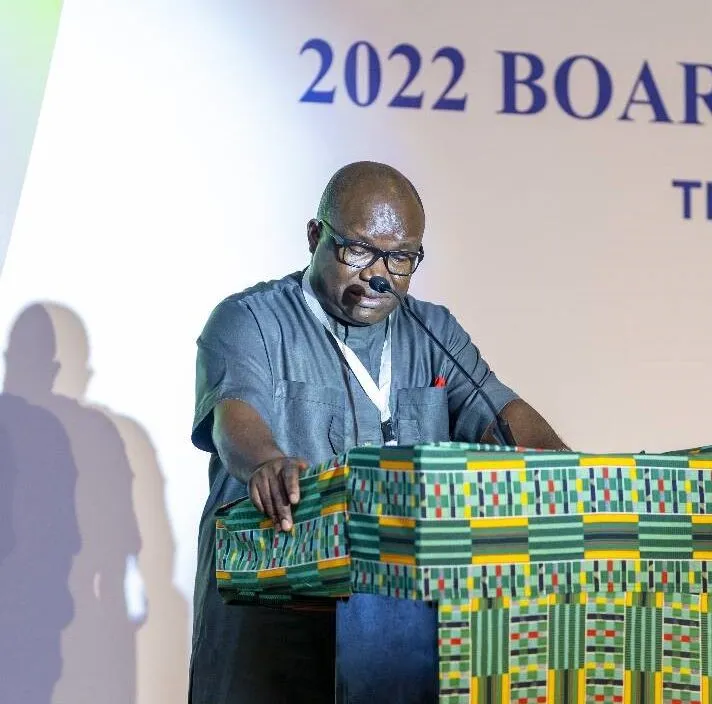
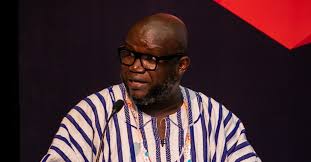

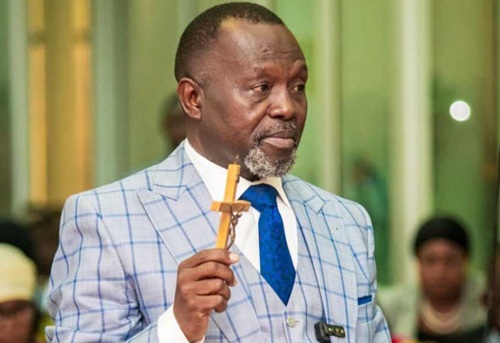


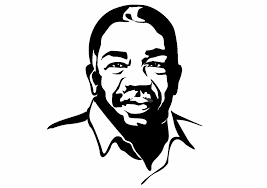
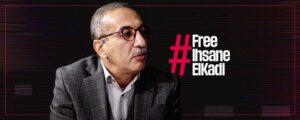
Post Comment